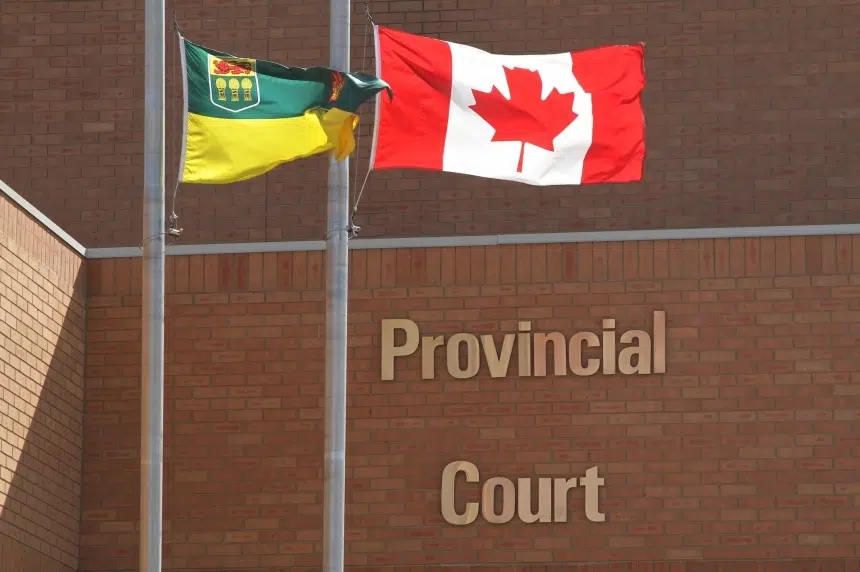A hearing is scheduled for Friday at 1 p.m. to answer the question of whether Dawn Walker will be released from custody.
Walker, 48, is facing criminal charges including abducting a child before fleeing to the United States. After a lengthy search in the Saskatoon area, Walker and the child were found unhurt in Oregon, where Walker was arrested.
She waived the formal extradition process, and is currently being held in custody before the hearing Friday in Saskatoon.
Hilary Peterson, a sessional lecturer at the University of Saskatchewan College of Law, said it’s important to that until a person pleads guilty or there is a trial that finds them guilty of a criminal offense — neither of which have happened in Walker’s case — any person applying to be granted bail is presumed innocent.
Further, she noted, the Canadian Charter of Rights and Freedoms guarantees that any person charged with an offense is not to be denied bail without just cause.
In Canada, bail hearings are called “show-cause hearings,” because the role of the Crown is to show cause for an accused person’s continued detention. Peterson broke down the process that will soon be applied in Walker’s case.
“Within our criminal justice system, the principle of restraint must be maintained,” Peterson said.
That, Peterson explained, means it is a priority to release any person in custody at the earliest reasonable opportunity. How that is judged, Peterson said, depends on three factors set out in Canada’s Criminal Code.
It is up to the Crown prosecutor to show why a person should be required to remain in custody, Peterson said, though there can be exceptions to that rule.
A judge must release a person back into the community after a show-cause hearing unless the Crown can demonstrate that there is a possibility that the accused will not return for their court date, that the accused could be dangerous to the public, or that keeping the accused in jail is necessary to maintain the public’s confidence in the administration of justice.
How a show-cause hearing works
The Crown is first to speak at the hearing, offering their reasons for why an individual should remain in custody.
Peterson said the seriousness of the offense, the strength of the prosecution’s case, the circumstances of the offense and the potential for a long jail sentence are all factors that will be considered in whether an individual is released and, if so, what conditions they might have to follow while free.
A prior criminal record is also “definitely” a factor in bail hearings, Peterson said. The Crown will present relevant legal history along with the alleged crime committed.
That information, she explained, is relevant because it can speak to whether a person will likely come back to court and whether they have complied with conditions in the past.
“All of these facts are alleged, because they haven’t been proven in court, so the Crown will be discussing those and they will be discussing whether they think they have a strong case,” she said.
The defense lawyer – or in some cases the defendant themselves – will then outline the individual circumstances of the accused, including information about their home life, employment, family and other relevant factors like medical conditions, addictions or mental health issues.
A proposed bail plan for their client will also be presented, Peterson said, usually outlining possible conditions the accused would consent to, and naming a possible surety who agrees to supervise a person released on bail awaiting their trial. The surety is often a family member or close friend.
“They must promise to give the court money if the person they are a surety for does not follow any of the conditions of their bail,” Peterson explained.
When it comes to assigning conditions that might be imposed, the first factor considered is whether a person is going to return for their next court date.
Peterson said conditions need to be “necessary and appropriate,” which means conditions should only be as strict as is necessary to ensure someone will show up for court and to ensure the public is protected.
The hearings are usually unique, because every person and alleged crime has different circumstances.
“There’s no place for standard or routine or boilerplate-type conditions,” Peterson said.
Judges are required to provide reasons for their decision to grant or deny bail. Those can be delivered orally, or in a written decision, and Peterson explained that it all comes down to whether the judge felt the Crown did or did not show cause that a person should remain detained.
Following a bail decision, both the Crown and the defense have the option to appeal the judge’s decision.
Cultural considerations
Peterson said a relatively new provision that has been in place for a few years and will likely affect Walker’s show-cause hearing is her status as an Indigenous woman.
That consideration is based on when the accused belongs to a vulnerable population that is over-represented in the criminal justice system, and who could be disadvantaged.
Peterson, who is Indigenous herself, explained that Indigenous people are over-represented in arrests, remand and in prisons in Canada. This provision is meant to address that issue and bring to the court’s attention whether a person could be released despite some of the circumstances that led them to court.
“There’s an over-representation of Indigenous people at every stage of the criminal justice system,” Peterson said. “Indigenous people are more likely to plead guilty to avoid remand time. Indigenous people are more likely to be arrested than non-Indigenous people, and more likely to be denied bail.”
Peterson said Indigenous people being more likely to live in poverty means they might not have access to a reliable surety. Indigeous people are also more likely to suffer dislocation, she said, meaning their community ties might not be as strong as others.
“Because of all of those circumstances, the court needs to consider whether they could still release a person and still have it be safe for the community and ensure that this person’s going to come back,” Peterson said.
Walker’s hearing is set for Friday afternoon, and high-profile lawyer Marie Henein has said she will be representing Walker.
— With files from 650 CKOM’s Lara Fominoff.







